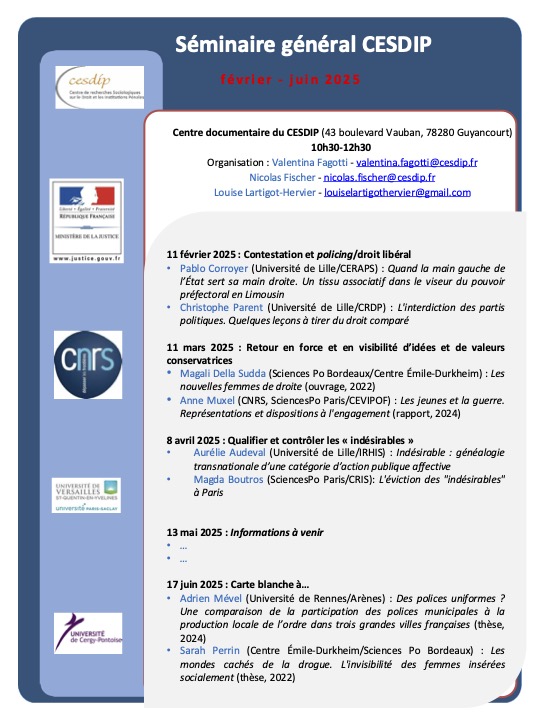by Mélanie PÉCLAT – september 2013
Mélanie PÉCLAT is a doctoral student, and ATER (temporary teaching and research assistant) at the University of Versailles-Saint-Quentin-en-Yvelines and works at the CESDIP. She is terminating her thesis on the representation of fiscal deviance and responses thereto in France.
Criminal trials for tax evasion and VAT frauds
Criminal trials for tax evasion clearly differ from standard trials. The Public prosecutor is not free to prosecute unless the ministry of Finance takes legal action. The complaint lodged by the ministry of Finances is filtered by the Commission on Fiscal Offences (Commission des infractions fiscales CIF), which decides which cases require criminal prosecution. Only a minority of the tax evasion cases handled by the tax administration are prosecuted. Indeed, according to the DGFIP (Direction générale des finances publiques) activities report for 2011, of the 51,441 spot checks, “15,402 external tax verifications (contrôles fiscaux externes or CFE) in response to blatant lapses exceeding any mere error or omission and involving significant sums led to a legal response”. Of these 15,402 dossiers, “1,046 complaints for tax evasion were submitted to the Commission on Fiscal Offences and 966 complaints were lodged following acceptation by the CIF”.
When the CIF gives its consent, the judicial institution then takes over and the tax administration acts as civil party. It then takes counsel from a lawyer from one of the two Paris law firms that have been defending it since the mid 1950s. Tax administration lawyers therefore begin to work upstream of the construction of the file that will be used to write up their conclusions and construct their pleas. In this sense, the tax administration is not viewed as an ordinary client, but rather as a “partner”. The chain of events, administrative at first and subsequently judicial, starting with a tax inspection and ending in a criminal trial for tax evasion, follows a specific path and deviates on this point from standard procedures. However, and herein resides the full ambiguity of the criminal trial for tax evasion, the administration attempts to give the impression that its special status has no influence on the decision handed down by the court. If the tax administration is an ordinary civil party, how is it that it practically never loses a trial ? How does the administration handle its special status as a “victim/partner” ? What is the real role of its lawyers in criminal trials for tax evasion ?
To answer these questions, we will attempt to show that the peculiar nature of the criminal treatment of tax evasion cases automatically places the fiscal administration in an ambiguous situation that forces lawyers to play the role of guarantors of respect for the law and for criminal court procedures.
Post-Scriptum
This issue of Penal Issues is extracted from a research in progress, in preparation for a doctoral thesis. The conclusions discussed here were drawn from the observation of 22 correctionnel court1 hearings for tax evasion and for defrauding the VAT. Our observations were conducted in February and March 2012 in courts located for the most part in the Île-de-France region. Twenty were done in Paris, Versailles, Bobigny, Meaux, Créteil, Évry, Nanterre and Cergy-Pontoise, one in Le Mans and one in Caen.
The observations were supported by semi-directive interviews with tax administration lawyers, designated as AV1, AV2, AV3 and AV4 to protect their identity.
Download the bulletin



